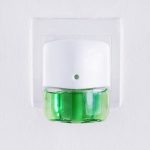Loving Our Livers
Every day, our liver works hard on our behalf, and when it’s struggling, it can impact our health bodywide. Detoxing is all the rage, but the truth is, sometimes detox protocols can make you feel worse instead of better. Why is that? How can we support our liver naturally, without overwhelming it? And why is it essential to everything from hormone balance to autoimmune health? In this podcast, we’ll be answering these questions and more. My guests are Dr. Alex Golden and functional nutritionist Megan Blacksmith. They’re the women behind the website Zesty Ginger, and liver health is one of their specialties.
Listen to the Show
- Subscribe to my podcast through your favorite podcast app: iTunes, Stitcher, Google, TuneIn, Spotify, Amazon, etc.
- You can also listen to the episode right here through the player below, and if you subscribe to my newsletter you’ll get notified of future episodes.
Podcast: Play in new window | Download
Show Notes
- Intro (0:00)
- Thank You to Our Podcast Sponsor – Paleo on the Go (01:40)
- A frozen meal delivery service, 100% of their menu is compliant with the elimination phase of the paleo autoimmune protocol (AIP). They have over 5o items, including entrees, side dishes, broth, AIP-friendly bacon, and desserts.
- Use the code PHOENIX for 10% off your first order.
- Meet Megan (3:04)
- Megan never paid much attention to her health until after she had her first child, and her hormones plummeted. She developed depression, anxiety, panic attacks, headaches, hives, and a complete loss of stress resilience. She went to the doctor, and all her labs were normal, so she started researching alternatives and found functional medicine & holistic nutrition. Testing showed imbalances in her hormones, neurotransmitters, and liver function. After correcting these imbalances through diet, prioritizing sleep, and changing her job to lower the stress levels in her life, she restored her health. She now feels better than she felt before this crisis, and with her second pregnancy, she experienced no postpartum health issues.
- Meet Alex (6:57)
- When Alex was 18, she developed chronic, severe pelvic and abdominal pain. In spite of numerous doctor visits, no one could find anything wrong and her pain was dismissed and left untreated. Research shows that this is all too common. Women’s pain is more likely to be dismissed than men’s pain. This was her inspiration for becoming an MD. She wanted to be a better doctor than the ones she saw. It was finally a reproductive endocrinologist that discovered endometriosis, and that was the first step toward improving her health. Since then, she’s made changes in diet, lifestyle, her emotional relationship with her body, and also has a great healthcare team on her side. While not completely pain-free, her pain has been greatly reduced. One thing she’s found especially helpful is syncing her diet with the female hormone cycle, and this is a technique they teach through their website.
- Functions of the Liver (12:48)
- The liver is a processing center where things are repackaged for use by the body, and also broken down to be detoxified from the body. It performs over 500 functions and plays an important role in regulating blood sugar, appetite, weight, sleep, hormones, digestion, immune function, and the central nervous system’s stress response.
- Resource: What Does the Liver Do?
- Assessing Liver Function (14:38)
- Conventional medical tests (ALT & AST) usually only catch liver problems once they become severe.
- Functional medicine testing can reveal imbalances earlier. The tests Alex and Megan like to use are the DUTCH test, Urine Organic Acids test, and Urinary Bile Acids Sulfates test.
- Symptoms can also reveal information about liver function. For example: scent sensitivity, reacting negatively to all medications and supplements, sudden weight loss or weight loss resistance, a thick coating on the tongue, strong body order, and skin conditions (acne, rashes, rosacea). Resource: Megan and Alex’s Detox Quiz.
- Syncing Liver Support with the Feminine Cycle (18:24)
- The first half of the menstrual cycle is impacted by how much inflammation exists in the body. The second half is impacted by our bodies’ detox capabilities. Both of these also impact autoimmune health, and the liver plays an essential role. It’s all interconnected. For women, it can be helpful to sync up their detoxification support with their cycle. For women who are no longer menstruating, or who have irregular cycles, Alex recommends syncing with the moon’s cycle instead.
- Resource: 4 Phases of the Feminine Cycle and a Free Cycle Guide.
- 3 Phases of Detoxification (24:38)
- Phase 1: the conversion of fat-soluble toxins into water-soluble toxins, so they can be released from your body. These include bacteria, medication, excess hormones and neurotransmitters, as well as chemicals from the environment.
- Phase 2: neutralizing the free radicals associated with these liberated toxins, and preparing them for transport out of the body.
- Phase 3: eliminating the toxins out of the body through feces, urine, lymph, and sweat.
- All phases are necessary to effective detoxification. If you’re constipated or not drinking enough water, there might be an obstacle at Phase 3, and the toxins will get reabsorbed by the body. Similarly, if Phase 1 is fast and Phase 2 is slow, the body can’t keep up with detox needs. This is a very common imbalance. The toxins at this stage are actually more dangerous, so if you feel bad during a detox protocol, it’s a sign your body is overwhelmed. This isn’t beneficial to health.
- While genetic testing might show mutations that can potentially cause detoxification challenges (like MTHFR), looking at detox function is what really matters. Some people with a genetic mutation still have excellent detox capacity, whereas others with no mutations might struggle. We are more than just our genes.
- Supports for each phase:
- Phase 1: If you see a detox herbal formula in the store, these usually push Phase 1. Milk thistle is one herb in this category. However, things like caffeine and certain medications also push this phase. Therefore, it’s often the other phases that need more support.
- Phase 2: Amino acids are essential to Phase 2, and that means adequate protein, usually from animal sources. One of the problems with a juice or water fast is that it provides no protein to support this phase. However, vegetables are needed for this phase as well: greens, brightly colored, and sulfur-rich (the 3 categories recommend on The Wahls Procotol.) And eating them in season provides the highest number of antioxidants. Resource: The Most Nutrient-Dense Fruits and Vegetables.
- Phase 3: Drink plenty of water. Pay attention to elimination. Sweat through saunas or exercise. Support lymphatic flow through these self-care techniques. And breathe deeply.
- Thank You to Our Podcast Sponsor: Real Plans (34:32)
- Find can find multiple recipes for the liver-supporting foods recommended in this podcast.
- A meal planning app that’s a wonderful time-saver. It can be used on a computer or smartphone.
- You choose the meals, and it generates shopping lists, defrost reminders, and how much time is needed to prepare and cook each recipe.
- They have hundreds of paleo AIP recipes available, and you can also personalize your meal plan according to your unique food needs, filtering for extra restrictions or adding foods back in with successful reintroductions.
- Sign up here. They have monthly, quarterly, and annual plans.
- Why Do Some Detox Protocols Make You Feel Worse Instead of Better? (36:19)
- Many detox protocols push Phase 1 without supporting Phase 2 and 3. This is especially true with “deprivation detoxes” where little to no food is actually consumed. Some people falsely believe that if they suffer detox symptoms, that’s a sign that “it’s working”. Not true. It’s a sign that the toxins are circulating and getting reabsorbed by your body, instead of eliminated.
- This sometimes even happens with gentle detox protocols that incorporate diet and lifestyle to support all phases. Sometimes we need to start really slow and take breaks to allow our body to catch up. A big part of detoxing well is knowing how to listen to your body and adjust your supports accordingly. This is especially important for people with autoimmune disease, because over-detoxing can kick off an autoimmune flare.
- Signs that you are over-detoxing: headaches, dizziness, fatigue, anxiety, depression, gut issues, water retention, trouble sleeping, skin reactions, swollen lymph nodes, increased body odor, increased coating of tongue, enlarged veins at the base of the tongue, etc.
- Note: Detoxing is contraindicated for pregnant or nursing women.
- The Importance of Reducing Incoming Toxins (44:03)
- This is the first step in any effective detoxification protocol, minimizing the toxins to begin with. Filter your water, by organic food whenever possible, switch to non-toxic skincare and household products.
- Resource: Episode 56: Healthy Detoxification.
- Coffee Enemas (45:04)
- This is a controversial topic, and people disagree on recommendations. You’ll find many personal testimonials, but not much peer-review scientific research.
- Megan has found them to be very helpful for many of her clients, especially during detox or gut health protocols. They seem to have a specifically powerful effect in reducing anxiety, and in Traditional Chinese Medicine, anxiety and the liver are connected. Therefore, she does believe they can play a beneficial role in liver detoxification, but recommends no more than once a week, and for a short period of time (1-2 months). She doesn’t want anyone to become dependent on them.
- Alex doesn’t recommend coffee enemas. Her concern is that they can push bacteria the wrong direction, which could cause or increase gut issues. Instead, she recommends glycerin suppositories for constipation, but only for limited short-term use. She doesn’t want anyone to become dependent on suppositories either.
- Like Megan, Eileen has used coffee enemas herself and noticed benefits. It eliminated discolored skin over her liver and abdomen (liver spots). She came to the healing diet community through GAPS, which recommends coffee enemas.
- Dr. Sarah Ballantyne, a leader in the paleo autoimmune community, doesn’t recommend them.
- These Habits Burden the Liver (50:25)
- Eating too much sugar.
- Drinking too much caffeine.
- Drinking too much alcohol.
- Not eating enough vegetables.
- Not sleeping enough.
- Not managing stress.
- Best Foods to Support the Liver (52:22)
- Sulfur-rich veggies. These increase glutathione, the body’s master antioxidant, and support Phase 2 liver detoxification. Megan has seen lab tests show improvements in estrogen metabolism, simply by adding these vegetables to the daily diet.
- Eat the rainbow. Brightly colored fruits and vegetables are full of antioxidants that also support Phase 2 liver detox.
- Elixirs: Fill a quart-sized mason jar 3/4 full with filtered water, and add liver supporting ingredients like lemon juice, lime juice, cranberry concentrate, pomegranate concentrate, apple cider vinegar, etc. You can also add a little milk thistle or liquid chlorophyll, but those need to be started slowly and aren’t recommended during the elimination phase of the AIP. Their Free Cycle Guide includes elixir suggestions for different phases of the menstrual (or moon) cycle.
- Quality protein from animal sources provide the amino acids necessary to detoxification. Liver is especially nutrient-dense, and it’s a myth that it stores toxins. (The liver is a filter, not a sponge.) If you don’t like the taste of liver, try liver capsules.
- Resource: Podcast Ep. 183 – Detoxifying Foods.
- Gentle Detox Supports You Can Do at Home (58:37)
- Dry Skin Brushing.
- Contrast Showers.
- Oil Pulling.
- Cilantro Liver Compresses: Steep 1 Tbsp fresh cilantro (or 2 Tbsp. dried) in 1 cup of boiling water for 15 minutes, then strain. Dip washrag in the liquid, squeeze out the excess, and lay it across your liver for 10 minutes. Cilantro contains minerals that can support liver health, and this can be a soothing nightly ritual.
- Tongue Scraping.
- Rebounding.
- Deep Breathing.
- Outro (1:06:51)
- You can keep up with Alex and Megan’s work through their website, Zesty Ginger. There, you’ll find their free Detox Quiz and Hormone Cycle Guide. They’re also very active on Instagram.
- Eileen (your podcast host) is the author of multiple books, written to help people thrive with autoimmune disease. Learn more on the Books Page.
- If you like this podcast, follow or subscribe through your favorite podcast app. You can also subscribe to Eileen’s biweekly newsletter.
- Check out the entire archive of podcast episodes.
You May Also Be Interested In
Spreading the Word
If you like the podcast, please leave a positive review in iTunes. It would mean the world to me, and also helps others find the podcast. Here are some quick instructions using your iPhone:
- If you are already subscribed to my podcast: (1) Click the purple podcast icon. (2) At the bottom of the screen, click Library. (3) At the top of the screen, click Shows. (4) Click the Phoenix Helix podcast image. (5) Scroll down the page, and you’ll see Ratings and Reviews. Scroll down a little bit more and click on Write a Review. This will bring up the review screen. Tap 5 stars (if you love the podcast), and then click in the title box, and it will bring up the keyboard. Enter a title and short review. (6) Click Send in the upper right corner. (7) Thank you! Positive reviews give the podcast a higher search ranking in iTunes, helping people find it and letting them know it’s a quality podcast and worth their time to listen.
- If you haven’t subscribed to my podcast: (1) Click the purple podcast icon. (2) In the lower right corner, click the magnifying class. (3) Type Phoenix Helix in the search box. (4) Click the podcast cover in the Show list. (5) If you’d like to subscribe, click the + sign at the top of the screen. (6) To write a review, scroll down the page, and you’ll see Ratings and Reviews. Scroll down a little bit more and click on Write a Review. This will bring up the review screen. Tap 5 stars (if you love the podcast), and then click in the title box, and it will bring up the keyboard. Enter a title and short review. (7) Click Send in the upper right corner. (8) Thank you! Positive reviews give the podcast a higher search ranking in iTunes, helping people find it and letting them know it’s a quality podcast and worth their time to listen.








